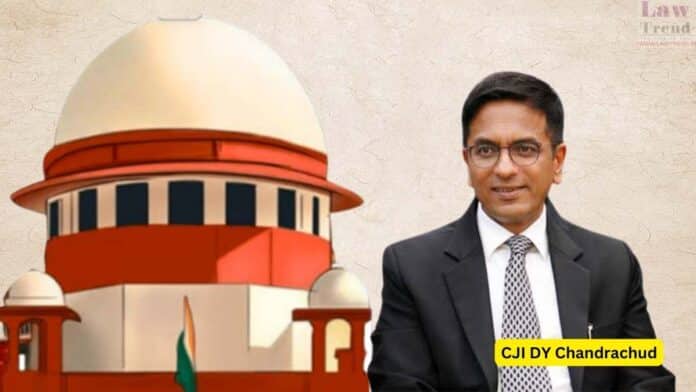Chief Justice of India D Y Chandrachud on Tuesday said that marriage is not a fundamental right and cannot be elevated to that realm based on the content accorded to it by law, holding that the court must steer clear of matters, particularly those impinging on policy, which fall in the legislative domain.
A five-judge constitution bench headed by him delivered four separate verdicts on a batch of 21 petitions seeking legal sanction for same-sex marriages.
The CJI made the observation in his judgment he wrote separately.
“The Constitution does not expressly recognize a fundamental right to marry. An institution cannot be elevated to the realm of a fundamental right based on the content accorded to it by law,” he said.
Justice Chandrachud, however, said several facets of the marital relationship are reflections of constitutional values including the right to human dignity and the right to life and personal liberty.
There is no universal conception of the institution of marriage, nor is it static, he said, adding that it lies within the domain of Parliament and the state legislatures to enact laws recognizing and regulating queer marriage.
Also Read
“Marriage has attained significance as a legal institution largely because of regulation by the state. By recognizing a relationship in the form of marriage, the state grants material benefits exclusive to marriage. The State has an interest in regulating the ‘intimate zone’ to democratize personal relationships,” the CJI held.
He further said that the SC cannot either strike down the constitutional validity of SMA (Special Marriage Act) or read words into the SMA because of its institutional limitations.
“This court cannot read words into the provisions of the SMA and provisions of other allied laws such as the ISA and the HSA because that would amount to judicial legislation. The court in the exercise of the power of judicial review must steer clear of matters, particularly those impinging on policy, which fall in the legislative domain,” he said.




